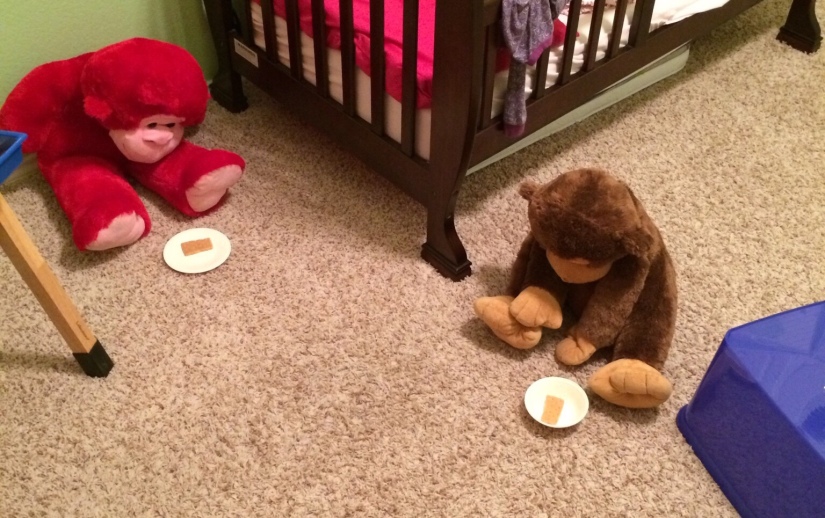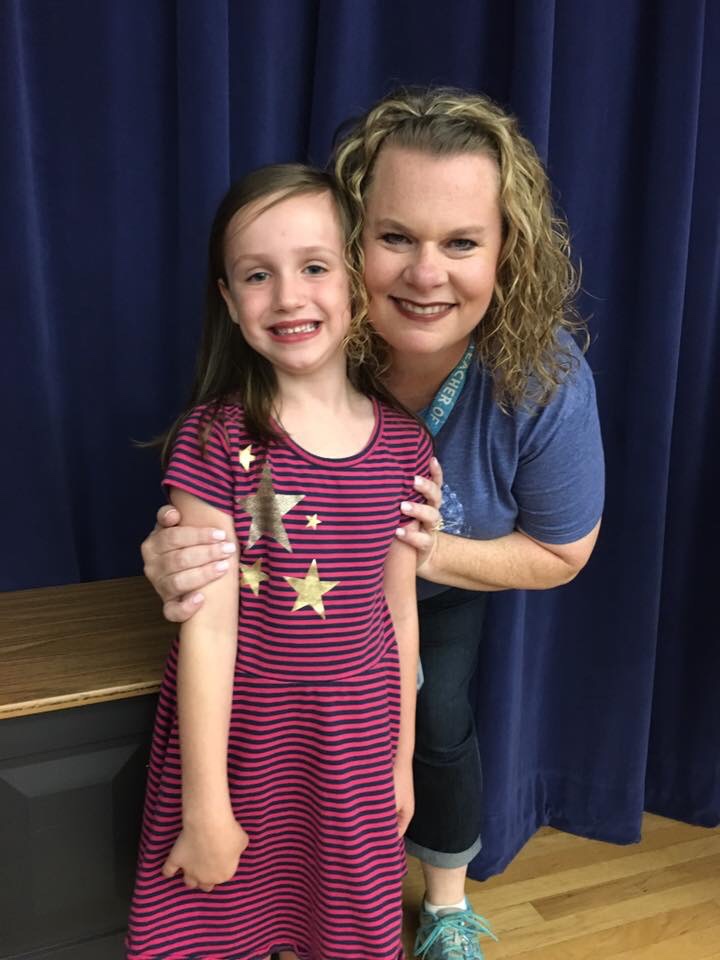I believe ISDs try to do what is right for all kids but, at times, have to make tough choices. When #txlege cut ed funding (which was never fully restored) in 2011, they had to do that. Will GT ed be gone at the next cut?
What are the economic benefits to communities if schools address the needs of gifted students?
Less spent on mental health programs if the needs of gifted students are being met. Kids who are being heard, understood and respected don’t get as much existential anxiety and depression. … Plus well supported gifted kids become well adjusted gifted adults who are highly productive, creative and innovative and will contribute amazing things. — Helen Parris
I think this is key. Gifted advocacy often focuses on the advantages to society of educating gifted kids. We also need to talk about the damage done to children when their ed needs go unmet. — Tedra Osell
Rural and regional kids have less access to high quality extracurricular programs that tend to fill some of the gaps in their general schooling. So cuts to gifted ed means that there are just gaps that don’t get filled. Of course this is an equity issue facing low socioeconomic gifted kids in metropolitan areas as well. Hence why no gifted programs should be cut. — Helen Parris
Helen Parris and Tedra Osell
Our district is small, rural, & relatively remote. We have so many equity issues we deal with. Our Ss in underserved populations will not only NOT be served w/funding cuts, they’ll likely not even be identified. It’s an issue of social justice. Cutting funds to #GT programs disproportionately affects rural districts as it widens the gap between the haves and have-nots.
Linda L. Autrey
As the Legislature considers special populations in need of dedicated funding, this must include the gifted and talented population.
Dallas Morning News: Don’t forget gifted and talented students
Not only do I have a daughter who is identified as gifted and talented, I work with gifted students every day in my enrichment groups. Gifted students need to be challenged and deserve just as much, if not more attention and individualized instruction as our RTI students.
I can’t imagine what my daughter’s academic career would be like if there were no dedicated GT program to address her learning needs.
Parent & Teacher, Lexington ISD, Lee County, Texas
My son is intellectually in the top 2% of school district. Without Aspire GT Academy my son was bored showing many ADHD & ODD symptoms. Having Aspire has changed that. This is just one reason. There are many that affect us as a state & nation. These are our future leaders.
Parent, ASPIRE Academy Middle School, GCISD
“One year, my quirky, super focused, perfectionist daughter was the only GT kid in her classroom [in another Texas school district; not GCISD]. The special treatment from her teacher served to further set her apart from her peers who had already begun to label her as “strange” and “weird.” By second grade, she was being bullied by other kids in her classroom. One child led a vote to find out didn’t like her and more than half the class raised their hand. She was devastated.
“Her well-meaning (and no doubt otherwise excellent teacher) had not received any training in how to serve and educate gifted children and was unwittingly contributing to the social and emotional isolation of my daughter. My daughter was ready to give up on school and give up on herself surrounded by educators who had not been trained to identify and meet the unique needs of gifted students. Fortunately, we found her a place where she is understood and can grow. …
“As a special education teacher, I am particularly aware that every student is unique and deserves the opportunity to grow both academically and socially. In order to do that, we as educators must be trained to meet children where they are with the greatest amount of understanding of who they are and what they need as possible. We must continue to offer GT programs and training so teachers can understand gifted students’ unique needs. No student should ever give up on him or herself because of untrained and under-resourced educators in the classroom.”
Patty, parent, Grapevine-Colleyville ISD
My gifted students are curious individuals that have a passion for learning. My students are continuously asking questions to gain greater insight and depth. Surface level knowledge is not appealing to them which makes my heart happy! My students and I have established a classroom environment where we don’t fixate on the product (the grades); we focus on the process. I do not get the question, “is that for a grade?” We’ve established that it’s okay to make mistakes and mess up. We do not need to be perfect 100% of the time. I would like to say my students feel safe and can be themselves. They do not feel like they have to act a certain way because of their “label”. We embrace the learning and not perfectionism. Since we have established this environment, our class truly feels like a family. My gifted students are truly amazing young adults.
Miral Kawasmi, GT and PreAP Chemistry Educator, GCISD, Colleyville, Tarrant Texas
Mom! Do you think before I was born, I asked God to make me sensitive? No! He just made me this way. So stop telling me not to be so sensitive, I can’t help it. It makes me feel like I’m not a good person and you don’t love me.
From a very young age, we knew that our daughter was smart. She could carry on a full conversation with adults when she was two. When she was three, she would come home from school and fully reenact her day by teaching her classroom of stuffed animals; feeding them snacks, changing their diapers and tucking them in for naps. If we wanted to know what was going on at school, we’d just observe Avery’s “classroom” in the evening. Friends, family and teachers constantly remarked about her ability to understand the world around her and communicate about it.

At the same time that Avery was impressing everyone with her intellect, I started to notice some significant differences from her peers in social settings. We started attending friend’s birthday parties as the kids in the class each turned three. In this setting, I noticed that she didn’t clamor towards activities like all of her friends did; she preferred to sit on the sidelines and observe. When we started to sing Happy Birthday, she’d cover her ears and cry as others sang as loud as they could. I didn’t want to coddle her or have her miss out on fun experiences (and I am ashamed to admit that I was also embarrassed that my child wasn’t behaving like all of her friends), so I encouraged her to conform and join the others in playing pin-the-tail on the unicorn or running around the play space and singing. I quickly realized that this didn’t produce the results I was hoping for.
So she was different. So what? She was smart, responsible and a rule follower. My husband and I learned what made her tick and we parented accordingly. No big deal, right? Wrong!
How do you explain to the revolving door of pre-school teachers that your daughter has a literal interpretation of the world? That if you jokingly ask her, “Can I take you home with me?” That she will actually worry that you are going to bring her home and she won’t get to see her parents again? How do you explain to them that if you correct her too harshly that you are crushing her tiny little soul and eliminating all of her self-esteem? That she will feel unloved? There were days when I wanted to lock her in a tiny little bubble to protect her from the world.

When Avery started kindergarten, her teacher and her gymnastics coach (who is a special education teacher in a nearby school district) both suggested that we have her tested for giftedness. So we did. In January of that year we found out that she was one of two kindergarteners who had placed into the GT, or Gifted and Talented program at her elementary school.

I grew up in a state that doesn’t provide gifted and talented support in public schools, so I had very little idea of what these test results indicated or what to expect from the programming. What I learned was this: the personality traits that we thought made Avery Avery, were actually traits associated with gifted children across the world and quite a bit of research has been done to identify and meet their unique intellectual, social and emotional needs. Through the school’s GT Lead Specialist, I was able to plug into Supporting & Advocating for Gifted Education(SAGE), the Texas Association for the Gifted and Talented (TAGT) and Supporting the Emotional Needs of the Gifted (SENG), where I learned about asynchronous development, overexcitabilites and the alarmingly high rates of anxiety, depression and suicides in gifted children.
So when my my seven-year-old daughter explained to me, with her bright blue eyes red-rimmed with tears that flowed freely down her cheeks, that she never asked to be made so sensitive and instructing her to “be less sensitive” made her feel like I didn’t love her, I wanted to crawl under the table we were sitting at on our back deck and disappear. Because I know better. I have absorbed so much research over the past two years and I know that the typical parenting rules don’t apply to gifted children. Gifted children require as much support and resources as children with special needs, because they are so different; the traditional approaches to intellectual and social development don’t apply. We will spend the next eleven years of Avery’s life helping her to understand what makes her unique and how to navigate a world that doesn’t always understand her.

But we’re lucky. We’re lucky because when Avery met her kindergarten teacher for the first time, she bent down to her and said, “Can I tell you a secret? It’s ok to be nervous. I get really nervous on the first day of school too.” We’re lucky because that same teacher was trained to recognize the traits of gifted children and was able to recommend that we get Avery into the GT Lead program at the school. We’re lucky because Avery’s second grade teacher has been working with gifted children for years and has received a significant amount of training in this area. She goes above and beyond the call of duty to to meet Avery’s intellectual needs (giving her third grade math homework) and emotional needs (letting her lead their book club and yoga exercises). We’re lucky that there is a community of support for our family as we go on this journey together.
Shared from Harmonie’s blog post, “Raising a Gifted Child.”
https://workingmom.life/2018/12/19/raising-a-gifted-child/
Harmonie Farrow, Grapevine Elementary, GCISD, Grapevine, Texas
We pay for public education with tax dollars, so an educational system that benefits every child is important – and a legal right. We considered private school for our child, however an educationally rigorous program did not exist unless we wanted to transport our son long distances. When the ASPIRE GT program for the highly gifted was created, my son benefited immediately. Not only did I see a difference in his demeanor, but teachers that he saw only twice a week noticed he became a leader, started having fun, and found his true self. He suffered from anxiety at the age of 5 because of a school environment that didn’t understand his needs. Once he was placed in a gifted program, his anxiety lessened dramatically. He excels now, in all areas. He’s found his people! I’m so glad he doesn’t have to endure the taunts and constant reminders that he is different or “other”, as I did in school. His teachers like Mrs Patton, Mrs Hollinger, and Mrs Ballard really “got him” and knew exactly how to draw out his best traits, while helping him when he was down on himself or struggled with anxiety and perfectionism.
